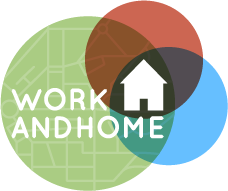Papers
- Houston, D. & Reuschke, D. (2017) City economies and microbusiness growth. Urban Studies. 11 Jan 2017, 1-19. Open access: http://journals.sagepub.com/doi/full/10.1177/0042098016680520
- Reuschke D. (2016) The Importance of Housing for Self-Employment. Economic Geography . Open access: http://www.tandfonline.com/doi/full/10.1080/00130095.2016.1178568
This paper provides a new perspective on the role of housing in economic geography and thus advances knowledge of the interrelationship between housing and economic systems. It shows, for the first time, how people’s housing choices are shaping their decision to become self-employed and that home-based self-employment has distinct features. Different mechanisms how housing can influence people’s self-employment decisions are theoretically derived and tested using longitudinal microdata for the UK. In particular, and advancing existing empirical studies, it controls for endogeneity of housing to self-employment using a novel technique from health research.
- Reuschke D. and Houston, D. (2016) The importance of housing and neighbourhood resources for urban microbusinesses. European Planning Studies 24:6, 1216-1235. Open access: http://www.tandfonline.com/doi/full/10.1080/09654313.2016.1168364
This paper makes two novel contributions to economic geography and planning. First, it studies microbusinesses (those employing less than ten staff) including those that are based in the owner’s home which have been ignored in developed country contexts. Second, it links hitherto disconnected literatures in economic geography/ management and urban/neighbourhood studies and develops a concept of local resources for microbusinesses. It explores empirically the relevance of local resources for microbusinesses over the business cycle which have been overlooked in existing literatures. It uses a random sample of microbusinesses that includes informal (hidden) businesses. It enhances the dataset through data linkage with small-area census data.
- Reuschke, D. (2016) Changes in the geographies of work and home. Regions 300, pp. 6-9 http://rsa.tandfonline.com/doi/abs/10.1080/13673882.2015.11668687
Working Papers and Thinkpieces
- Houston, D. and Reuschke, D. (2016) Microbusiness and the City. ERC WORKANDHOME. Portsmouth and Southampton. Microbusinesses and the City
Microbusinesses (those that employ less than 10 people) represent a significant proportion of the economy. However, microbusinesses have been neglected in urban economic research and policy, which have focussed more on flagship investments and large firms. This working paper summarises own empirical work on microbusiness growth and locational requirements of microbusinesses including those that are based in the owners home.
- Wilkins, A. (2017) Profiles of Coworking Networks in Homes and Neighbourhoods in the UK, France and Sweden. ERC WORKANDHOME. University of Southampton. Coworking research profiles
This working paper examines coworking in homes and neighbourhoods in the UK, France and Sweden. It draws upon qualitative research on coworking that takes place in people’s homes, including Hoffice (Stockholm) and Cohome (Paris), as well as coworking that takes place in public spaces including cafes, community and leisure centres (Wimborne, Somerford and Winchester Jellies). The paper examines the background, organisation structure, location and users of each network, and provides information on the activities that take place as part of coworking in each case. Photographs taken by the researcher and participants are also included to visually document the coworking spaces and activities. This working paper forms part of the ERC WORKANDHOME project, which examines the economic, social and spatial drivers of home-based business.
Presentations
- Presentation: How Space and Place shape Coworking in the New Economy. Spatial Reconfigurations of Work in Cities, University of Portsmouth, 21st April 2017.
- Presentation on coworking and home-based business, Research Group on Collaborative Spaces, London, 24th February 2017
- Presentation on Home-based business, Housing and Economic Development at LISER, Luxembourg, on 2nd November 2016.
- Presentation on Home-based Business and Economic Development at the European Urban and Regional Studies Conference, in Crete, on 15th September 2016.
- Presentation at the Centre for Regional Economic Development (CRED) at the University of Cumbria, Carlisle, on 24th February 2016
- Presentation at the Leibniz Institute of Ecological Urban and Regional Development (IOER) on 23rd November 2015, Dresden
